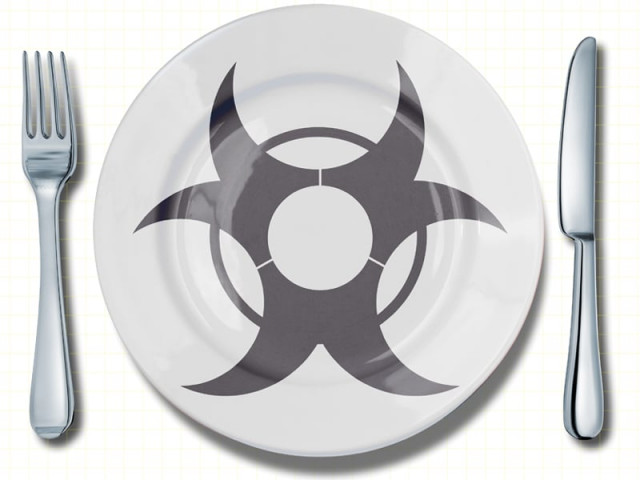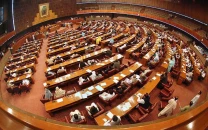Summer woes: Gastro patients throng emergency wards
Scorching heat, unhygienic food items blamed for spike.

The number of patients suffering from gastrointestinal and heat-related diseases in the twin cities’ public hospitals has shown a steep increase compared to last year.
The average temperature in Islamabad has been hovering between 42 to 46 degrees Celsius during the past few weeks according to the Meteorological Department, further aggravating the situation as patients continue to flood the hospital emergency wards.
Dr Waseem Khawaja, a gastroenteritis specialist at Pims, said people are consuming substandard drinks and unhygienic food from street vendors to beat the heat, while prolonged power outages at homes, restaurants, food chains and bakeries mean that food in the refrigerator may also go bad.
Dairy products such as yoghurt and fresh milk are not stored at the right temperatures, while some bakeries sell stale items and keep their products at room temperature in showcases.
The majority of shops selling dairy products and bakeries located in rural areas and interior Rawalpindi city do not have a back-up power and are likely to offer unhygienic food items.
A senior doctor at Polyclinic who wished not to be named said officials tasked with keeping a check over food quality believe they have done their duty by issuing orders. Nobody makes the effort to check hygiene standards and food quality. Every summer, people fall ill for the same reasons. Food inspectors don’t bother to inspect meat shops, bakeries and restaurants to assess food quality, he added.
“Even at some famous food chains in the capital, vegetables served with dahi bhallas, channa chat, burgers and other food items are not fresh. Power outages have worsened the situation.”
When contacted, Deputy Commissioner Amir Ali Ahmed said the Islamabad Administration launched a week-long drive on Friday against shopkeepers for selling substandard food items and overcharging. Raids are being conducted at shops and if the owners are found to be guilty, they will be penalised accordingly, he added.
Dr Mujtaba Ali at Holy Family Hospital (HFH) said most gastro patients are treated for a few hours and are realised once they stabilise. However, young children are often are hospitalised and kept under constant surveillance.
The doctor said most gastro patients suffer due to unhygienic living conditions and bad eating habits.
Benazir Bhutto Hospital (BBH) Medical Superintendent Dr Asif Qadir Mir said the administrations of the allied hospitals were fully alive to the situation and ready to cope with any epidemic.
Hoping the situation would not go out of control, the MS said all hospitals had special arrangements for dengue patients and if needed, the beds and other equipments would be used for gastro patients.
Extraordinary measures are taken for children at paediatric wards during the monsoon season as young children often fall seriously ill due to excessive loss of fluids from their body, Dr Mir said.
Rawalpindi Medical College Principal Dr Mussadiq Khan said the intake of fluids and liquids should be increased while urging people to ensure they are drinking clean water.
Dr Khan said only unclean water and unhygienic foods cause gastro problems and if not taken care of at the initial stage, the illness could be fatal, especially for children.
Health Awareness Society Director Dr Samia Babar said mostly people suffer from dehydration and gastrointestinal diseases due to consuming unhygienic food in summer. She suggested people include buttermilk, lemonade, yoghurt, fresh juice and vegetables in their diet during this season and avoid unnecessary exposure to the sun.
Published in The Express Tribune, July 9th, 2012.



















COMMENTS
Comments are moderated and generally will be posted if they are on-topic and not abusive.
For more information, please see our Comments FAQ